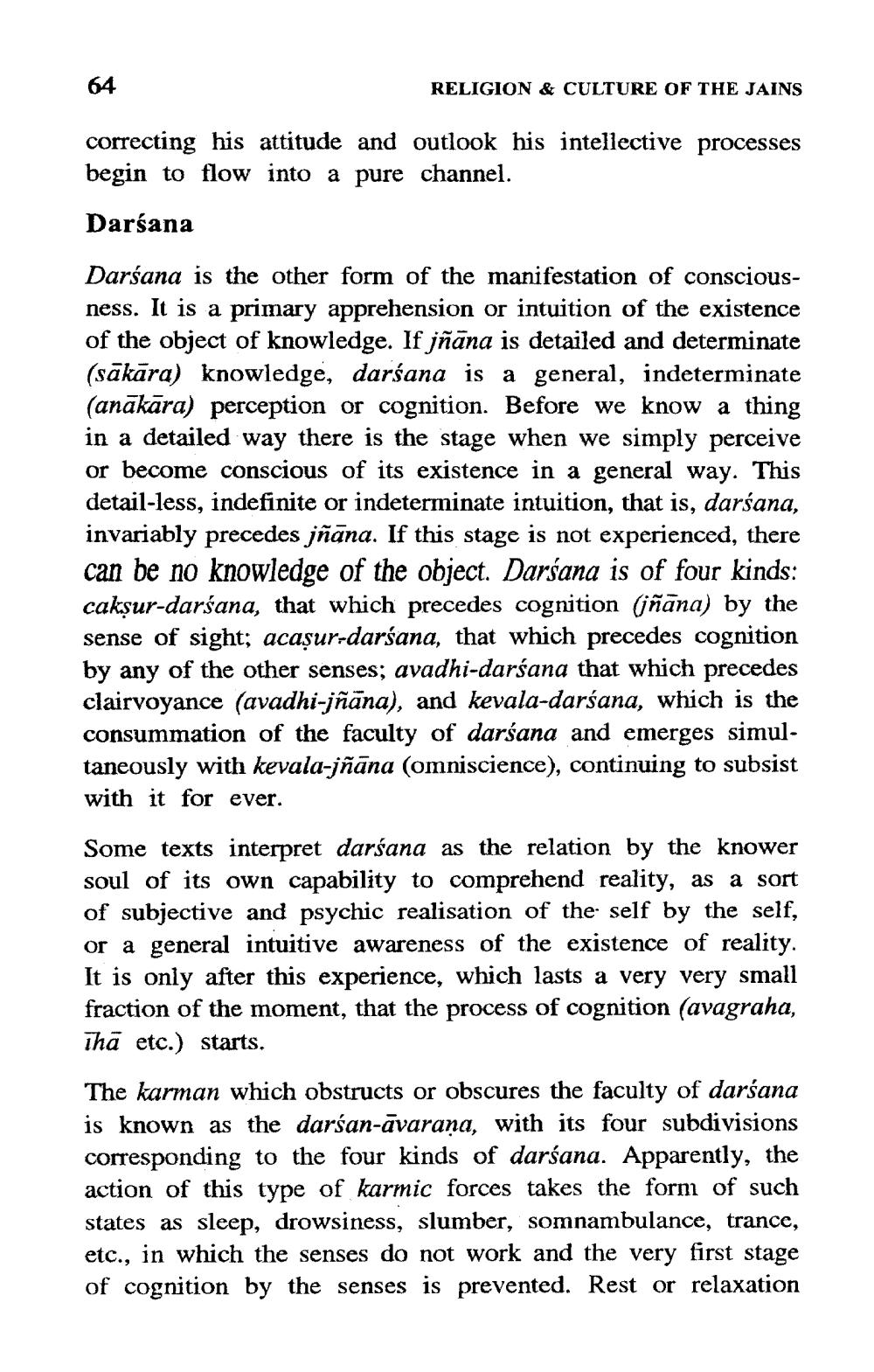________________
A
RELIGION & CULTURE OF THE JAINS
correcting his attitude and outlook his intellective processes begin to flow into a pure channel.
Darśana
Darśana is the other form of the manifestation of consciousness. It is a primary apprehension or intuition of the existence of the object of knowledge. If jñāna is detailed and determinate (sākāra) knowledge, darśana is a general, indeterminate (anākāra) perception or cognition. Before we know a thing in a detailed way there is the stage when we simply perceive or become conscious of its existence in a general way. This detail-less, indefinite or indeterminate intuition, that is, darśana, invariably precedes jñāna. If this stage is not experienced, there can be no knowledge of the object. Darsana is of four kinds: cakṣur-darśana, that which precedes cognition (jñāna) by the sense of sight; acașur-darśana, that which precedes cognition by any of the other senses; avadhi-darśana that which precedes clairvoyance (avadhi-jñāna), and kevala-darśana, which is the consummation of the faculty of darśana and emerges simultaneously with kevala-jñāna (omniscience), continuing to subsist with it for ever. Some texts interpret darśana as the relation by the knower soul of its own capability to comprehend reality, as a sort of subjective and psychic realisation of the self by the self, or a general intuitive awareness of the existence of reality. It is only after this experience, which lasts a very very small fraction of the moment, that the process of cognition (avagraha, īhā etc.) starts.
The karman which obstructs or obscures the faculty of darśana is known as the darśan-āvarana, with its four subdivisions corresponding to the four kinds of darśana. Apparently, the action of this type of karmic forces takes the form of such states as sleep, drowsiness, slumber, somnambulance, trance, etc., in which the senses do not work and the very first stage of cognition by the senses is prevented. Rest or relaxation




